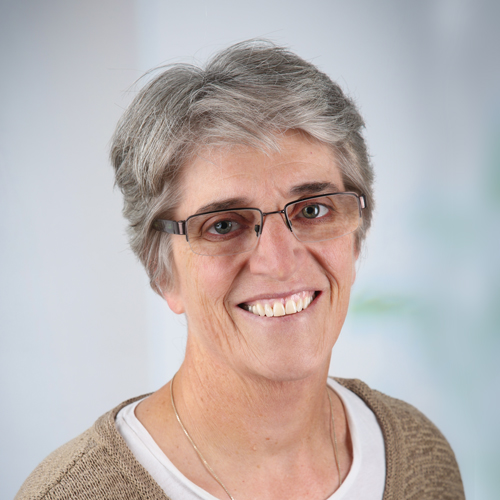Research Interests:
The role of inflammation in prostate cancer disease progression The use of photodynamic therapy, in both pre-clinical and clinical settings as a means of enhancing anti-tumor immunity through alteration of tumor microenvironmentsAbout Sandra Gollnick
Biography:
Dr. Gollnick joined the faculty at Roswell Park in 1990 after postdoctoral training at DNAX Research Institute in Palo Alto, CA and serving as a staff scientist at ImmunLogic Pharmaceutical Corp. Dr. Gollnick has been funded by the National Cancer Institute for the past 17 years and is currently the PI as well as a Project Leader of a Program Project Grant continuously funded for the past 21 years.
Dr. Gollnick is an Associate Editor of Photochemistry and Photobiology and has served as a reviewer for numerous journals including Cancer Research, Journal of Immunology and Oncogene. Dr. Gollnick is also a member of the NCI Radiation Therapeutics and Biology Study Section and has reviewed grants for the US Army Research Program as well as the Canadian and Dutch Cancer Societies.
Dr. Gollnick served as Director of Graduate Studies for the Tumor Immunology Program for many years and is currently a member of the Graduate Studies Steering Committee. She was honored with the Excellence in Graduate Education Award in 2010.
Positions
- Director, Photodynamic Therapy Center
- Member, Department of Cell Stress Biology
- Distinguished Professor, Department of Immunology
Background
Education and Training:
- PhD (Biochemistry) Iowa State University, Ames, IA
Professional Memberships:
- American Association of Cancer Research
- American Association of Immunology
- American Photobiology Society
Research
Research Overview:
Dr. Gollnick’s research focuses on the yin and yang of inflammation in the progression and treatment of cancer. Chronic inflammation contributes to the development and progression of many cancers, including prostate cancer. Dr. Gollnick’s laboratory explores how tumor cells co-opt the host immune system to promote chronic inflammation that leads to increased vascularization, suppression of anti-tumor immunity and increased tumor cell proliferation and migration. The goal of this work is to develop novel therapeutic targets based on increased understanding of the interaction of tumor cells and immune cells.
Unlike chronic inflammation, acute inflammation promotes the development of anti-tumor immunity. Many anti-cancer modalities, including radiation, chemotherapy and photodynamic therapy (PDT), result in acute inflammation. PDT is an FDA approved anti-cancer modality used for the elimination of early disease and palliation of late stage malignancies. Dr. Gollnick’s laboratory has shown that PDT stimulates anti-tumor immunity that is capable of combating distant disease. Her current focus is on developing clinical protocols for the treatment of head and neck and lung cancers with a goal of providing enhanced tumor control, including control of metastases, with minimal effect of quality of life.
Publications
- Sass, S.N., Ramsey, K.D., Egan, S.M., Wang, J., Cortez Gomes, E., Gollnick, S.O. Tumor-associated myeloid cells promote IL-1α-driven prostate tumorigenesis. Cancer Immunol. Immunother. 67: 873-883, 2018.
- Egan, S.E., Karasik, E., Ellis, L., Gollnick, S.O., miR-30e* is overexpressed in prostate cancer and promotes NF-κB-mediated proliferation and tumor growth. Oncotarget, 8: 67626-67638, 2017
- Brackett, C.M., Kojouharov, B.M., Veith, J.M., Green, K.F., Burdelya, L. G., Gollnick, S.O., Abrams, S.I., Gudkov, A.V., The Toll-like receptor-5 agonist, entolimod, orchestrates an NK cell-dendritic cell-CD8+ T cell axis that suppresses tumor metastasis. Proc. Natl. Acad. Sci. USA 116: e874-83, 2016
- Ito, F., Ku A.W., Bucsek, M.J., Muhitch, J.B., Vardam-Kaur T., Kim, M., Fisher, D.T., Camoriano, M., Khoury, T., Skitzki, J.J., Gollnick, S.O., and Evans, S.S. Immune adjuvant activity of pre-resectional radiofrequency ablation protects against local and systemic recurrence in aggressive murine colorectal cancer. PLoS One 10:e0143370, 2015
- Shams M, Owczarczak B, Manderscheid-Kern P, Bellnier DA, and Gollnick SO, Development of photodynamic therapy regimens that control primary tumor growth and inhibit secondary disease. Cancer Immunol. Immunother. 64:287-297, 2015

